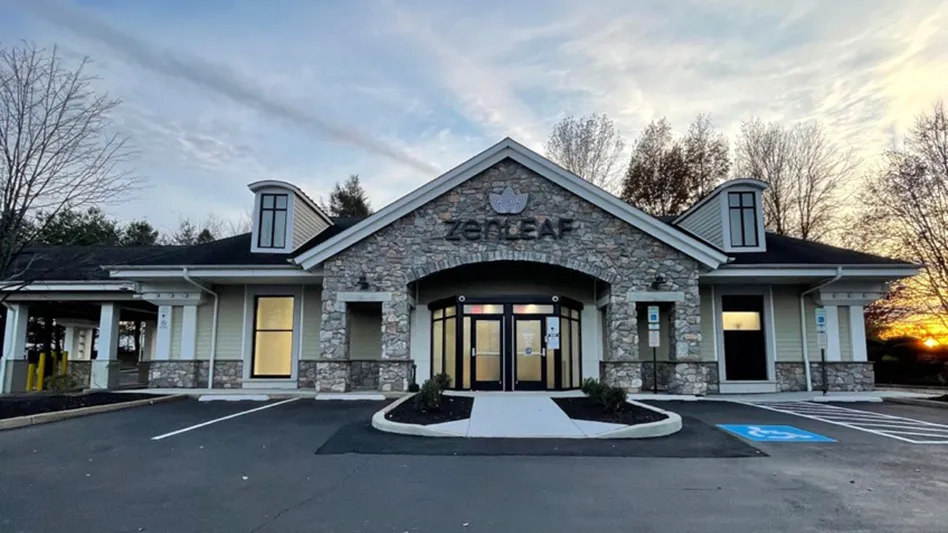
Sean Pavone | Adobe Stock
Wisconsin’s prohibition policies on medical cannabis will likely last another year.
Assembly Speaker Robin Vos, R-Rochester, said Feb. 15 that he’s no longer willing to call a floor vote for a bill to legalize medical cannabis—legislation that he supports—after receiving pushback from Senate Majority Leader Devin LeMahieu, R-Oostburg, The Associated Press reported.
The Assembly’s bill, unveiled Jan. 8 by Rep. Jon Plumer, R-Lodi, called for a restrictive program with five state-run dispensaries under the Department of Health Services, with an option to increase that store number in the future.
In the days following the bill’s unveiling, LeMahieu said that the Assembly’s idea of state-run dispensaries was a “nonstarter” for many of his caucus members in the Senate. “Why would we let government grow the size of government?” he asked.
In the Assembly, Vos said last month that he was unwilling to budge on the proposed bill his chamber put forward, and now this impasse likely means reform hopes are dead for the year.
“We see that the Senate wants to have a more liberal version than the one that we’re willing to pass,” Vos said at a Thursday news conference, the AP reported. The top lawmaker in the Assembly, Vos said he has the votes to pass the bill in his chamber but still doesn’t plan on bringing it to the floor with the body due for an initial adjournment next week and no path forward for the bill’s advancement in the upper chamber.
It should be noted, however, that the Wisconsin Legislature has full-time legislators who can meet throughout the year after adjourning from their regularly scheduled sessions. But without a compromise in the works, Wisconsin will likely remain an outlier in the nation.
This defeat for patients comes as 38 states have legalized cannabis for medical purposes, and 24 have gone on to legalize the plant for adult use. In addition to the 38 states, Texas, Iowa and Georgia have restrictive medical cannabis programs—ones that many industry advocates don’t recognize—meaning Wisconsin is one of nine states that continues to fully prohibit cannabis.
RELATED: Will These 9 Prohibition States Legalize Medical Cannabis in 2024?
Also, Wisconsin is one of 24 states in the nation that does not provide for citizen-initiated ballot measures, meaning cannabis reform is solely in the hands of lawmakers in the state Legislature, where Republicans have held majorities of both the Assembly and Senate since 2011.
While Wisconsin Democratic Gov. Tony Evers, who has held office since 2019, has pushed for adult-use cannabis legalization via his state budget proposals in past years, he said in early January 2024 that he was willing to get on board with the more limited medical cannabis program being proposed by Republican lawmakers in the Assembly.
In addition to state-run dispensaries, the intent of the Assembly Republicans’ bill was to allow patients to access non-smokable cannabis products, such as oils, tinctures, edibles and topicals.
The proposed qualifying conditions included: Alzheimer’s disease, cancer, chronic nausea, chronic pain, epilepsy, glaucoma, HIV or AIDS, inflammatory bowel disease, multiple sclerosis, muscle spasms, post-traumatic stress disorder, and terminal illnesses where a person’s life expectancy is less than one year.
While dispensaries would have been run by the state, the legislation called for licensing independent businesses to cultivate and manufacture/process medical cannabis.
But with Republicans unable to reconcile their cross-chamber differences on state-run dispensaries, it’s unclear where the middle ground lands for future reform considerations.
In the meantime, 83% of likely Wisconsin voters support legalizing medical cannabis, according to an April 2019 Marquette University Law School poll, while 64% support legalizing cannabis for adult use, according an October 2022 Marquette Law School poll.
Latest from Cannabis Business Times
- Ohio Medical Cannabis Operators Could Launch Adult-Use Sales in June
- 47 Ohio Localities Enact Cannabis Moratoriums Ahead of Adult-Use Sales Launch
- Key Takeaways From USDA's 2024 Hemp Report
- Cannabis Rescheduling: Where Do We Go From Here?
- Verano Opens MÜV Haines City, Company’s 75th Florida Dispensary
- Ascend Wellness Holdings Reports $142.4M Net Revenue for Q1 2024
- Trulieve Reports $298M in Revenue for 1st Quarter 2024
- SNDL Reports 1st Quarter 2024 Financial, Operational Results





